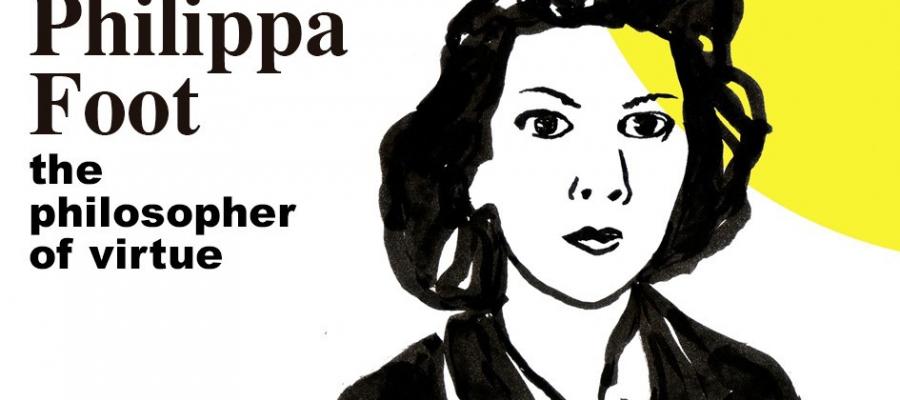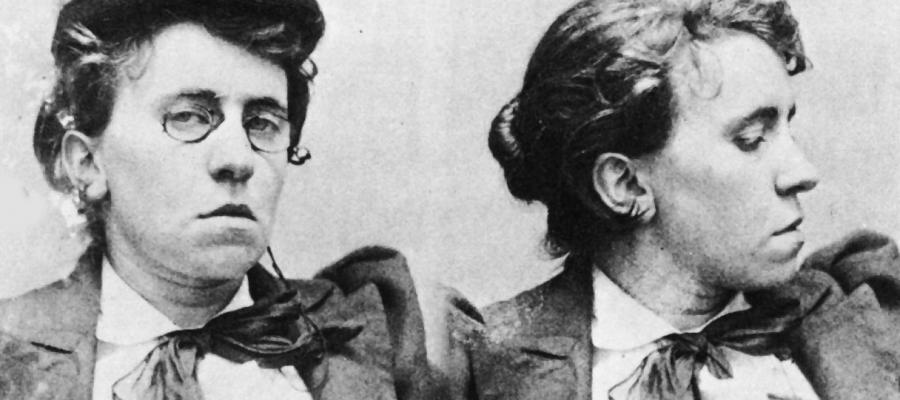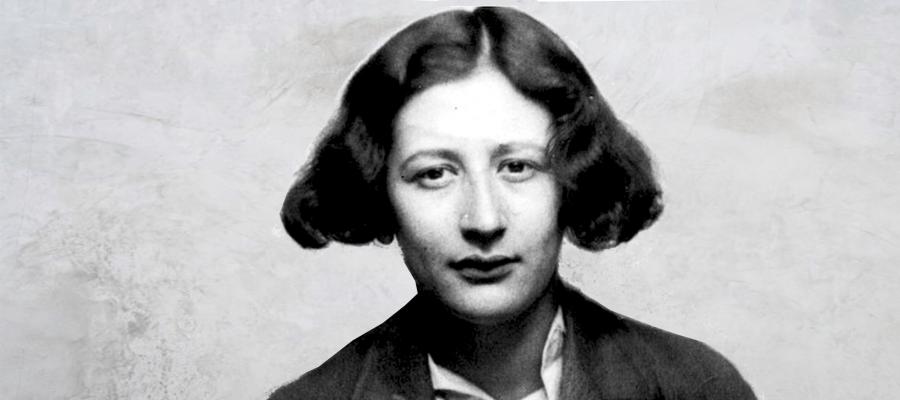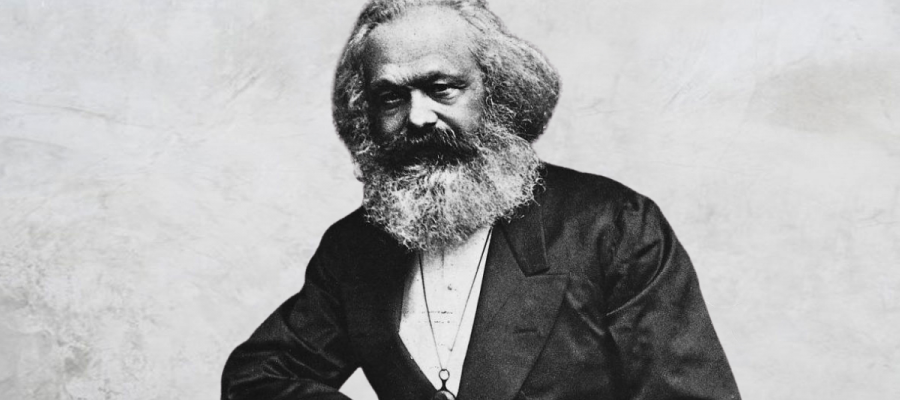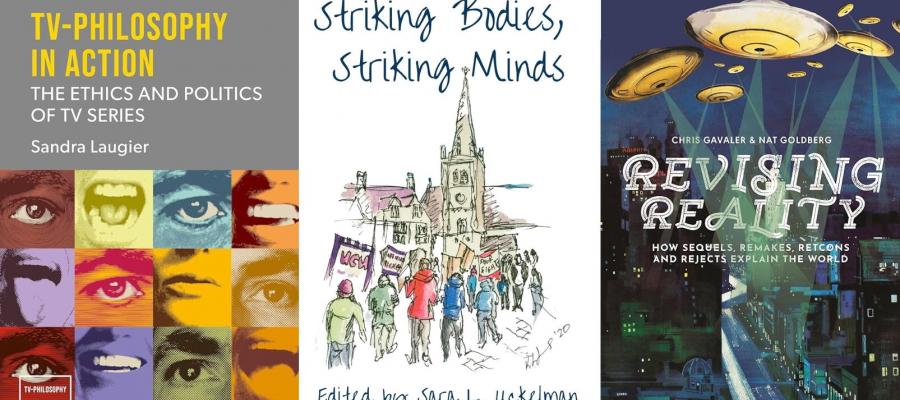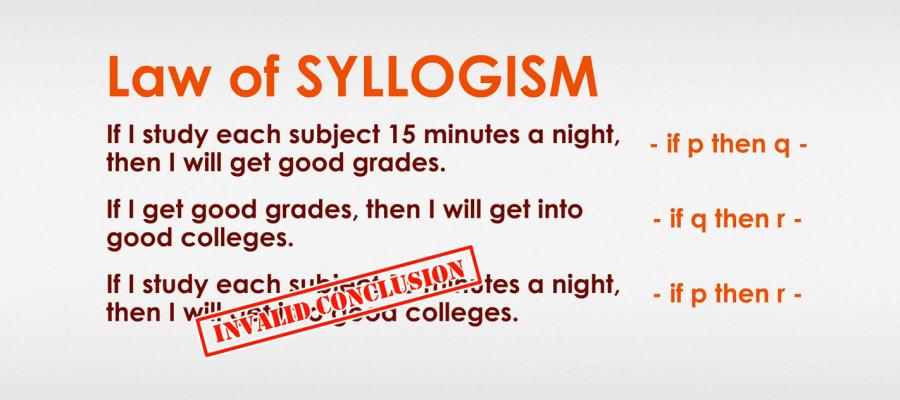Put Your Best Foot Forward
08
Jun 2025
Philippa Foot was a member of the "Oxford Quartet" of moral philosophers and also an important influence on Judith Jarvis Thompson, who picked up one of Foot's thought experiments and made it famous.
Read moreAgainst Scientism
09
May 2025
Mary Midgley was one of the UK's most prominent public intellectuals. She wrote and spoke prolifically about the value of the humanities, about environmentalism, and about science—though she was also a vocal critic of scientism, the idea that science can explain everything.
Read moreLetter of the Law, Spirit of the Law
21
Apr 2025
Every law has a letter and a spirit. The letter of the law says “don't drive faster than 65,” but everyone knows that really means 70. In fact, if everyone around you is doing 70, it can be unsafe to go under 65. The spirit of the law is not to enforce some precise speed but to keep everyone safe.
Read moreThe Philosopher-Novelist
08
Apr 2025
Iris Murdoch was one of the "Oxford Quartet" of moral philosophers. Most famous for her novels like "The Bell," "The Black Prince," and "The Sea, The Sea" (which won the Booker Prize in 1978), Murdoch also made hugely important contributions to moral philosophy.
Read moreThe Trolleyologist
13
Mar 2025
You've probably heard of the infamous Trolley Problem, but you may not know that we owe its name to Judith Jarvis Thomson. She didn’t come up with the original thought experiment; that was Philippa Foot, one of the other philosophers that we’re featuring in this Wise Women series.
Read moreCreepy Converts and Pugnacious Priests
27
Feb 2025
It's that time of year again, when all eyes turn to Hollywood as the Academy of Motion Picture Arts and Sciences presents its awards for artistic and technical merit in film, and all ears turn to our special episode celebrating the most thought-provoking movies of the past year—the Dionysus Awards.
Read moreBorges as a Philosopher
13
Feb 2025
Jorge Luís Borges is one of our favorite authors—and one of the most philosophical. He wrote beautiful poems, whimsical essays, and mind-bending short stories. One of his most amazing essays is “A New Refutation of Time,” in which he proves that we don’t exist.
Read moreBeyond the Turing Test
05
Feb 2025
Is there anything computers can't do—or at least won't be able to do at some future time? They have already gotten pretty powerful: so far we've developed cars that drive themselves, protein-folding software that discovers new medicines, and some great tools to help students cheat on their papers.
Read morePhilosopher of Action
09
Jan 2025
Anscombe was a hugely important 20th-century philosopher who worked on many topics: history, metaphysics, religion, language. But above all she was a pioneering figure in the philosophy of action, which asks questions like what’s the difference between doing something on purpose and just having it happen.
Read moreThe (Re)creation of the World
12
Dec 2024
How much can we know about Mayan Mythology? Much of the Mayan way of life, along with its associated oral traditions, was wiped out by European invaders in the 16th century. But there are still Maya communities today, and we also have a few written sources, including the Popol Vuh.
Read moreWell, Isn't That Special!
27
Nov 2024
It seems obvious that many things make humans special. Take language: it's pretty unlikely, no matter how smart they are, that dolphins could either read or write this blog. But that attitude vastly underestimates what non-human animals can do with their complicated communication systems.
Read morePhilosopher of Anarchism
13
Nov 2024
Emma Goldman is a fascinating—and controversial—figure. She lived in my places: from Lithuania and Latvia to New York, London, Berlin, Spain, not to mention the Soviet Union, where she was deported in 1919. J. Edgar Hoover called her “one of the most dangerous anarchists in America.”
Read moreLooking, Listening, Liberating
21
Oct 2024
Simone Weil was an early 20th-century French philosopher who was born into a Jewish family but later adopted a mystical form of Christianity. She had many strong views, but she often practiced what she preached.
Read moreThe Birth of Black Feminism
30
Sep 2024
Anna Julia Cooper was born into slavery but became only the fourth African-American in history to earn a PhD. She lived into the 1960s, witnessing Reconstruction, Jim Crow, and the Civil Rights movement. Her book "A Voice from the South" influenced later thinkers like Frederick Douglass and W.E.B. Du Bois.
Read moreMarx the Moralist?
16
Sep 2024
Did Karl Marx hate morality? He called morality a bourgeois prejudice, a way to trick workers into being docile drones instead of rebelling against the system. And yet at other times Marx sounds like very much the moralist.
Read moreMystic, Composer, Polymath
21
Aug 2024
Many people know Hildegard of Bingen for her musical compositions, which were really innovative for the 12th century and are still being performed today. In fact in the 1990s, an electronic version of them by Richard Souther even reached number one in the charts.
Read moreWho Made You Spokesperson?
21
Jul 2024
When we think of people who speak on behalf of us, we usually think of someone elected or appointed to do so: a congressperson, a senator, maybe even a department chair. But what about people who aren’t elected or officially appointed?
Read moreBrazil's First Feminist?
03
Jul 2024
Nísia Floresta is often called "the Brazilian Mary Wollstonecraft" because people thought her first book was a translation of Wollstonecraft's "A Vindication of the Rights of Women." She does have some things in common with Wollstonecraft, especially with regard to women’s rights.
Read moreSummer Reading Extended
07
Jun 2024
This year's Summer Reading special (our 18th!) was a relatively orderly one, with a trio of interviews that shared some common ground in pop culture, exploring philosophical issues in popular TV series, fictional movie universes, and semi-obscure sci-fi stories.
Read moreThe Logic of Logic
23
May 2024
Suppose you need to persuade your roommate to do the dishes. You might try to reason with them, using an argument about fairness. But logical arguments often don't work, and you may find yourself resorting to guilt and shame—or even threats—to get what you want.
Read moreA Vindication of Mary Wollstonecraft
07
May 2024
Mary Wollstonecraft was a fascinating philosophical figure, in part because she didn’t just write philosophical treatises. Like our previous Wise Woman, Margaret Cavendish, she wrote pamphlets and even novels. And she campaigned not just against sexism but against all kinds of inequality.
Read moreWeird, Wild Stuff
25
Apr 2024
Did you know that some lizards reproduce themselves by cloning? And sea squirts are even weirder: they start their lives as free-swimming larvae, but then they attach themselves to rocks, digest their own brains, and become a totally different kind of creature.
Read moreShakespeare's Anti-Heroes?
12
Apr 2024
In Shakespeare’s plays, characters like Othello, Shylock, and Caliban are often more interesting than the heroes. But Shakespeare can also be really unfair to those characters—they basically come off as racist stereotypes.
Read moreWhat's On Your Mind?
28
Mar 2024
We’re constantly sharing what’s on our minds; heck, I'm doing it right now, by writing this blog. What's fascinating, though, is that we also seem to do it without trying, or so much as noticing.
Read moreMargaret the First
21
Mar 2024
Margaret Cavendish, Duchess of Newcastle in the 17th century, was a fascinating polymath. And she had a radical idea about the universe: everything in it thinks. Amoebas, rocks, trees, dust—you name it, it's cogitating.
Read more- 1 of 40
- Next ›
